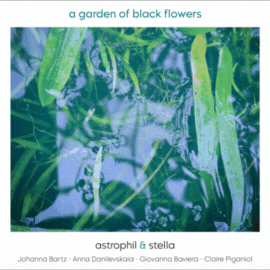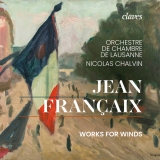Jean Françaix, geboren am 23. Mai 1912 in Le Mans, war seit seinem 10. Lebensjahr Schüler von Nadia Boulanger. Seine Kammermusik gehört zu seinen größten Erfolgen, und das wird beim Anhören dieser Aufnahmen leicht verständlich. Sie ist neoklassisch und vor allem französisch: fein und elegant, brillant und frisch, mit einer Lebendigkeit und einem Hauch von Humor, ja sogar Ironie. Sie spiegelt die Freude des Komponisten am Komponieren wider. Sie ignoriert neue Trends und folgt nicht, wie der Komponist sagt, « den Autobahnen der Gedanken », sondern « den Waldwegen ».
Die Interpretationen der von Nicolas Chalvin inspiriert geleiteten Bläser des Orchestre de Chambre de Lausanne werden dem Charakter der Kompositionen gerecht und vermitteln die ganze Finesse und Verspieltheit der schnellen Sätze sowie die Poesie und große Zartheit der langsamen Sätze. Einiges hat man allerdings schon in keckeren Interpretationen gehört.
Jean Françaix, born in Le Mans on May 23, 1912, was a student of Nadia Boulanger from the age of 10. His chamber music is among his greatest successes, and that becomes easy to understand when listening to these recordings. It is neoclassical and, above all, French: fine and elegant, brilliant and fresh, with a liveliness and a touch of humor, even irony. It reflects the composer’s joy in composing. It ignores new trends and does not follow, as the composer says, « the highways of thought », but « the forest roads ».
The interpretations of the wind section of the Orchestre de Chambre de Lausanne, conducted with inspiration by Nicolas Chalvin, do justice to the character of the compositions, conveying all the finesse and playfulness of the fast movements and the poetry and great delicacy of the slow movements. Some of it, however, has been heard in bolder interpretations.

























